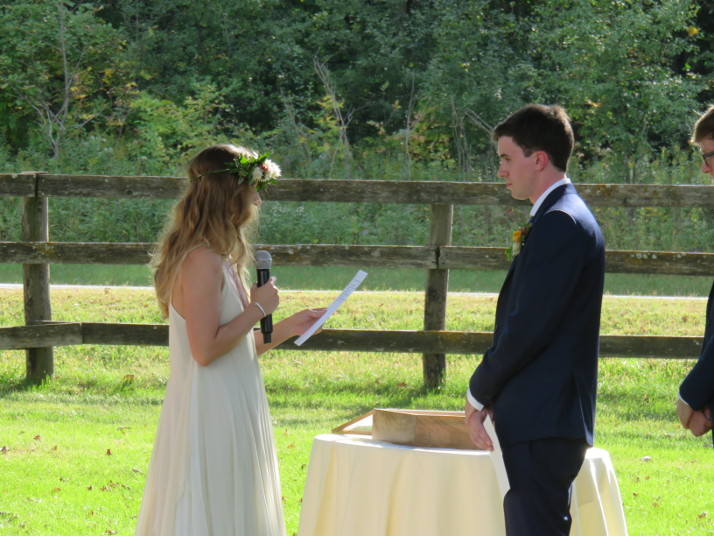Vow Renewals: Affirming Your Love and Commitment
Vow renewals interest to couples for a variety of reasons. But whatever the reason you’re considering a vow renewal ceremony, rest assured that it can be as special and significant as the first time you said, “I do”.
Traditionally vow renewals are held to mark a milestone anniversary – often 25 or even 50 years of marriage. And that’s still a great reason to gather your family and friends together and celebrate your very successful marriage. Vow renewals of this kind can renew treasured memories by including a reading or song from your first wedding. You can even recite the same vows you made to each other “back in the day”. And of course you might use the same color scheme, carry a similar bouquet, or have some of your original wedding party stand up with you once more.
Vow renewals are also wonderful if you opted for an elopement or courthouse wedding the first time around. Your vow renewal ceremony can be the big wedding you never had, or a simpler but significant experience. You can select a wedding party, wear a gown and tux or suit, perhaps have your children serve as flower girls or ring bearers if they are of an appropriate age. Since you’re already married, you might opt to enter the ceremony space together, but if you always dreamed of having your father or parents walk you down the aisle go ahead and start the ceremony that way. This kind of vow renewal ceremony can be created with all the personalization, rituals and elements of a first wedding. You’re limited only by your creativity and vision for your perfect ceremony.
A very special kind of vow renewal ceremony can be created if you’ve experienced a difficult time as a couple, and are coming back together now to re-commit yourselves to your marriage. You can opt for a very small, personal ceremony in this case, but feel free to opt for a larger celebration with family and friends if that feels right. Under these circumstances the ceremony can be your public statement of commitment and love to each other. It can mark a new beginning, a fresh slate, and a sincere promise to live up to the promises/vows you choose to make to each other.
Vow renewals can be as elaborate, formal and unique as you want them to be. They can also be brief, simple ceremonies offered as part of a larger celebration. Whatever the particular circumstances that cause you to consider vow renewals, there is a ceremony that can be crafted that will be personal, meaningful and memorable for you and that will fit your personality and style. Vow renewals are a great way to celebrate your love and commitment to each other, and mark another milestone moment in your life.

